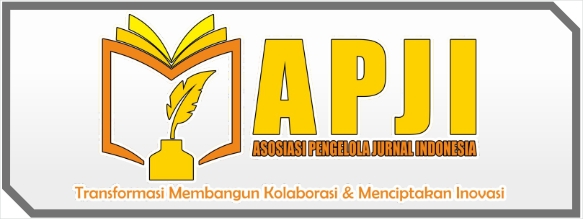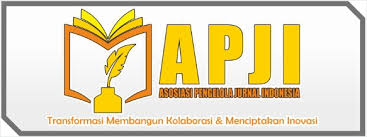Community-Based Waste Management Education to Promote Environmental Sustainability
DOI:
https://doi.org/10.70610/assoeltan.v3i1.393Keywords:
Behavior Change, Community-Based Waste Management, Composting, Environmental SustainabilityAbstract
This community service initiative aims to promote environmental sustainability through community-based waste management education. The rapid increase in urbanization and waste generation has significantly impacted the environment, necessitating effective waste management strategies at the community level. This project aimed to educate the community on waste segregation, composting, and recycling practices to foster sustainable waste management behaviors. Using a Participatory Action Research (PAR) approach, this program involved local communities in identifying waste management challenges and implementing practical solutions through education and training workshops. The results revealed a significant increase in knowledge about waste management practices, with 85% of participants adopting waste segregation and composting techniques at the household level. However, challenges such as limited space for composting and the varying willingness to adopt new behaviors among different age groups were identified. The program increased environmental awareness and behavior change in the community, highlighting the importance of local leadership and community involvement. The findings emphasize the need for continued infrastructure support and tailored approaches for different demographic groups to ensure the long-term success of waste management initiatives. This initiative contributes to the broader effort of achieving environmental sustainability through grassroots-level engagement and education.
References
Abdallah, M., Talib, M. A., Feroz, S., Nasir, Q., Abdalla, H., & Mahfood, B. (2020). Artificial intelligence applications in solid waste management: A systematic research review. Waste Management, 109, 231–246.
Agdal, R., Midtgård, I. H., & Meidell, V. (2019). Can asset-based community development with children and youth enhance participation in health promotion projects? A qualitative meta-synthesis. International Journal of Environmental Research and Public Health, 16(19), 3778.
Aldiab, A., Chowdhury, H., Kootsookos, A., Alam, F., & Allhibi, H. (2019). Utilization of Learning Management Systems (LMSs) in higher education system: A case review for Saudi Arabia. Energy Procedia, 160, 731–737. https://doi.org/10.1016/j.egypro.2019.02.186
Anh Khoa, T., Phuc, C. H., Lam, P. D., Nhu, L. M. B., Trong, N. M., Phuong, N. T. H., Dung, N. Van, Tan-Y, N., Nguyen, H. N., & Duc, D. N. M. (2020). Waste management system using IoT-based machine learning in university. Wireless Communications and Mobile Computing, 2020, 1–13.
Antico, F. C., Wiener, M. J., Araya-Letelier, G., & Retamal, R. G. (2017). Eco-bricks: A sustainable substitute for construction materials. Revista de La Construccion, 16(3), 518–526. https://doi.org/10.7764/RDLC.16.3.518
Ap. Moreira, G., & Wanda Rutkoskwi, E. (2021). Zero Waste Strategy for a Green Campus. Journal of Sustainability Perspectives, 1, 367–373. https://doi.org/10.14710/jsp.2021.12027
Awasthi, A. K., Cheela, V. R. S., D’Adamo, I., Iacovidou, E., Islam, M. R., Johnson, M., Miller, T. R., Parajuly, K., Parchomenko, A., Radhakrishan, L., Zhao, M., Zhang, C., & Li, J. (2021). Zero waste approach towards a sustainable waste management. Resources, Environment and Sustainability, 3(January), 100014. https://doi.org/10.1016/j.resenv.2021.100014
Collins, S. E., Clifasefi, S. L., Stanton, J., Straits, K. J. E., Gil-Kashiwabara, E., Rodriguez Espinosa, P., Nicasio, A. V, Andrasik, M. P., Hawes, S. M., & Miller, K. A. (2018). Community-based participatory research (CBPR): Towards equitable involvement of community in psychology research. American Psychologist, 73(7), 884.
Darmawan, D., Alamsyah, T. ., & Rosmilawati, I. (2020). Participatory Learning and Action untuk Menumbuhkan Quality of Life pada Kelompok Keluarga Harapan di Kota Serang. Journal of Nonformal Education and Community Empowerment, 4(2), 160–169. https://doi.org/10.15294/pls.v4i2.41400
Dewantara, J. A., Efriani, E., Sulistyarini, S., & Prasetiyo, W. H. (2020). Optimization of Character Education Through Community Participation Around The School Environment (Case Study in Lab School Junior High School Bandung). JED (Jurnal Etika Demokrasi), 5(1), 53–66.
Elhoushy, S. (2022). To taste not to waste: Can exposure to TV cooking shows cultivate food waste reduction? Journal of Consumer Behaviour, 21(4), 713–727.
Hamzah, S. N., Nursinar, S., & Ahmad, F. (2022). Level of Community Participation in the Management of Minanga Beach Tourism in North Gorontalo Regency. Jurnal Sosial Ekonomi Kelautan Dan Perikanan, 17(1), 105–113.
Hasanah, Y. (2021). Eco enzyme and its benefits for organic rice production and disinfectant. Journal of Saintech Transfer, 3(2), 119–128. https://doi.org/10.32734/jst.v3i2.4519
Hikmah Harun, N., & Firdaus Mohamad, M. (2022). The Immunomodulatory effects of Zingiber officinale (Ginger): A Systematic Review. Research Journal of Pharmacy and Technology, 3776–3781. https://doi.org/10.52711/0974-360x.2022.00634
Jusuf, E., Herwany, A., Kurniawan, P. S., & Gunardi, A. (2020). Sustainability concept implementation in higher education institutions of Indonesia. Journal of Southwest Jiaotong University, 55(1).
Kamis, A., Rus, R. C., Rahim, M. B., Yunus, F. A. N., Zakaria, N., & Affandi, H. M. (2017). Exploring green skills: A study on the implementation of green skills among secondary school students. International Journal of Academic Research in Business and Social Sciences, 7(12), 327–345.
Kasapa, A., & Gyan, C. (2023). Community Participation in Planning Social Infrastructure Delivery in Ghana’s Local Government: A Case Study of Shai Osudoku District. Journal of Development Policy and Practice, 24551333231165830.
Lyman, F. T., Tredway, L., & Purser, M. (2023). Think-Pair-Share and ThinkTrix: Standard Bearers of Student Dialogue. In Contemporary Global Perspectives on Cooperative Learning: Applications Across Educational Contexts. https://doi.org/10.4324/9781003268192-12
Martiskainen, M. (2017). The role of community leadership in the development of grassroots innovations. Environmental Innovation and Societal Transitions, 22, 78–89.
Miliyanti, N., Rinaldy, R., & Alghifari, R. (2022). Application of Participatory Rural Appraisal (PRA) Techniques in Waste Problems in Sukamanis Village Kadudampit District. Jurnal Pengabdian Masyarakat Bestari, 1(9). https://doi.org/10.55927/jpmb.v1i9.2111
O’Meara, K., & Jaeger, A. J. (2019). Preparing future faculty for community engagement: Barriers, facilitators, models, and recommendations. Building the Field of Higher Education Engagement, 111–131.
Prabowo, P. A., Supriyono, B., Noor, I., & Muluk, M. K. (2021). Special autonomy policy evaluation to improve community welfare in Papua province Indonesia. International Journal of Excellence in Government, 2(1), 24–40. https://doi.org/10.1108/ijeg-06-2019-0011
Rahmelia, S., Haloho, O., Pongoh, F. D., & Purwantoro, B. (2022). Building an Environment That Motivates Education Sustainability in Tumbang Habaon Village, Gunung Mas, Central Kalimantan Province, During Pandemic through Participatory Action Research between Parents, Schools and Church. Engagement: Jurnal Pengabdian Kepada Masyarakat, 6(1), 204–220.
Ripno, R., Nathalia, T. C., & Pramomo, R. (2021). Waste Management in Supporting Sustainable Tourism Case Study of Touris Destination Malioboro Yogyakarta. International Journal of Social, Policy and Law, 2(2), 1–4.
Soliati, S. (2019). Community empowerment in managing waste through takakura training. Jurnal Empowerment, 8(1), 48–54.
Zebua, R. S. Y. (2021). The Implementation of Character Building to Improve Resident Participation in Waste Management. IOP Conference Series: Earth and Environmental Science, 810(1), 12025.
Downloads
Published
How to Cite
Issue
Section
License
Copyright (c) 2025 Assoeltan: Indonesian Journal of Community Research and Engagement

This work is licensed under a Creative Commons Attribution-NonCommercial-ShareAlike 4.0 International License.
License: CC BY-SA 4.0 (Creative Commons Attribution-ShareAlike 4.0 International License)













